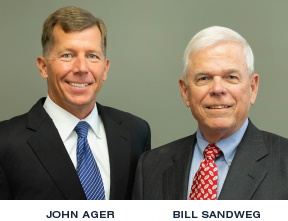Posted by Bill Sandweg on 30 March 2020.
Doctors and hospitals win 85% to 90% of the medical malpractice cases tried across this country. This percentage holds true even when the facts strongly favor the patient. Why can’t patients get a favorable verdict from their fellow citizens? There are a number of likely explanations.

One of the likely explanations is the successful campaign by the health care industry and its insurers to persuade the public that most medical malpractice cases are frivolous. National and state legislators believe this, especially if they are Republicans. They pass restrictive laws to take away patients’ rights in the name of saving the medical profession from frivolous suits. Over and over again the public hears that medical malpractice suits are frivolous, even though, when the medical profession itself examines the issue, it finds that most of the suits have merit.
Every large verdict in favor of a patient is held up by the industry as further evidence of the unfairness of the system, even though almost all large verdicts get reduced later. The reductions are never mentioned by the industry so as to leave the public with the impression of a runaway system.
Perhaps one of the most significant reasons the public believes these claims are frivolous is that the medical profession insists on secrecy whenever it settles a malpractice case. Last week I wrote about a Florida case which was suddenly dropped by the plaintiffs with no reason given. The most probable explanation was that the insurance company for the doctors had paid them off and insisted that they keep the payment secret.
Doctors and hospitals settle cases where their malpractice is clear and they are at risk of a large verdict, if they go to trial. Of course, in the settlement paperwork they deny that they were at fault but, as the old saying goes, money talks. They would not be paying hundreds of thousands of dollars, if they had done nothing wrong.
These are not cases where a runaway jury holds a doctor responsible where the doctor did nothing wrong. These are cases in which the doctor has consented to a settlement and his insurance company has agreed to pay money to make the case go away.
Maybe if the public knew of these settlements, things would be different. Maybe if the public knew that doctors, hospitals and their insurers were paying money for malpractice claims, they would be more inclined to believe that malpractice does happen and that many of these claims have merit. It could not hurt to make these settlements public and at least the public would know who the doctors and hospitals are who are paying money to settle malpractice claims. Making these settlements public won’t happen, however, without legislative action. The doctors, hospitals and their insurers want to keep up the appearance that no patients are being harmed by medical negligence and that claims to the contrary are frivolous.




